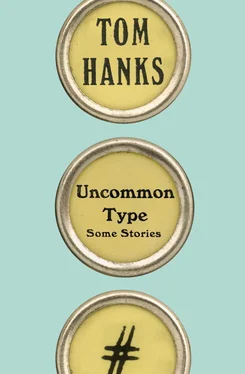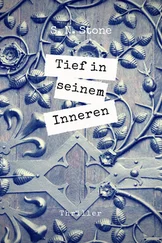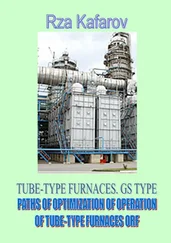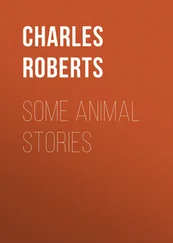It was the early spring of 1970 and because his tenth birthday was in a week and a half, Kenny Stahl, still thought of as the baby of the family, did not have to go to school. He was going to be picked up by his mother around noon to spend a special weekend with her, so he came to the breakfast table in his ordinary, nonschool clothes. His older brother, Kirk, and older sister, Karen, both in their uniforms for St. Philip Neri School, thought the deal was unfair. They wanted their mom to come and pick them up, too—to take them away, out of the house they had been moved into, to live again in Sacramento or anyplace else as long as they were the only kids and the dark moodiness of their father and the constant, sunny practicality of his second wife would not make their lives an emotional teeter-totter.
Kenny’s three stepsisters were seventeen, fifteen, and fourteen years old. His stepbrother had two years on him. None of them had opinions as to the fairness of the birthday plan. They had always lived together in Iron Bend, attended the unified public schools, and never had to wear uniforms. This weekend didn’t strike them as interesting, notable, or in any way special.
The small house they all lived in was far out of town on Webster Road, closer to Molinas than to Iron Bend, which was the county seat and where Kenny’s father was head cook at the Blue Gum Restaurant. Eucalyptus trees—blue gums—lined both sides of Webster Road for most of the miles between the two towns, scattering their leaves and nuts all over the two lanes and both shoulders. Decades ago the messy imports from Australia were planted as windbreaks for the almond groves as well as in a misinformed attempt to farm the trees for railroad ties. This was back when big money could be made in railroad ties, as long as they were not made of eucalyptus. Fortunes were lost on the twisting, peeling, gnarly-growing trees, three of which were spaced across the front yard of Kenny’s house; the constant rain of debris laid waste to every attempt to plant decent grass there. The backyard had sort of a lawn, a patch of weed-studded green, which the kids took turns mowing on occasion. Across the road were almond orchards. Almonds were a big industry then and still are now.
Kenny’s father had found a new job in Iron Bend, a new home, a new school, and, it turned out, a new family. He’d moved his three kids into the small house the very same night they had left Sacramento. All the boys slept in what had been a screened-in porch. All the girls were in one bedroom with twin bunk beds.
After two school buses had come and gone, Kenny spent the morning shuffling around the house as his father slept and his stepmother quietly cleaned up the breakfast dishes. He had never been at home without the other kids and was thrilled to have the run of the place. His only instruction was that he was to keep quiet. For a while, he watched TV with the volume nearly mute, but there was just one channel, Channel 12 from Chico, and during school hours there was nothing on that interested him. He played with the model ships and planes he had made from kits, using the top of the living room coffee table as the vast sea. He went through the dresser drawers of his brother and stepbrother looking for secrets, but their treasures were hidden elsewhere. In the backyard, he punted a football, trying to clear the nearest almond trees, gambling that in failure the ball wouldn’t get stuck in their branches. He tied a cut of an old bedsheet to a discarded beanpole, making a flag that he ran around with like he was leading a charge in the Civil War. He was trying to plant the flag into a hole when his stepmom called to him from the kitchen window she had cranked open.
“Kenny! Your mother is here!”
He hadn’t heard the car.
In the kitchen, he was caught short by a sight he had never seen in the near decade of his life; his dad was awake and sitting at the table with his morning coffee. His mother, his real mom, was sitting at the table as well, a cup of coffee of her own. His stepmother was on her feet, leaning against the counter, sipping coffee, too. The three caretakers of his world had never been in the same room at the same time.
“There’s the Kenny Bear!” Kenny’s mom was beaming. She looked like a secretary in a TV show—professionally dressed, wearing heels, her trim black hair neat, her makeup showing red lips that left marks on her coffee cup. She stood and hugged him with perfumed arms, kissing the top of his head. “Go get your bag and we’ll hit the road.”
Kenny had no idea about any bag, but his stepmother had put some clothes into one of her daughter’s small pink suitcases. He was packed. His father stood up and frazzled Kenny’s hair. “I gotta shower,” he said. “Go check out your mother’s hot wheels.”
“You got me Hot Wheels?” Kenny asked, thinking that his birthday present was going to be some miniature cars made of die-cast metal.
But no. In the driveway was an actual sports car, red, a two-seater, with wire wheels. The top was up and already littered with eucalyptus fallings. The only sports cars he’d ever seen were on television, driven by detectives and young doctors.
“Is this yours, Mom?”
“A friend let me borrow it.”
Kenny was looking through the driver’s side window. “Can I sit in it?”
“Go ahead.”
Kenny figured out how to open the door and sat behind the wheel. The dials and switches of the car looked like they came from a jet plane. The wood paneling was like furniture. The seats smelled like leather baseball mitts. The red circle in the middle of the steering wheel said FIAT. After his mother put the pink suitcase in the car’s trunk, she asked for Kenny’s help putting the top down.
“We’ll let the wind blow through our hair until we get to the highway, okay?” She undid the latches of the top and Kenny helped fold it back, bending the clear plastic window in on itself. His mother fired up the engine, which sounded like a dragon clearing its throat, then she backed out of the driveway—she had taken off her heels to work the pedals and put on a pair of sunglasses, the kind worn by snow skiers. Mother, son, and Fiat roared away from the house, down Webster Road, the gum tree shadows making the sunlight strobe in Kenny’s eyes, the wind sounding in his ears and whipping his hair from back to front. The car was the coolest, most boss ride Kenny had ever seen. He was the happiest he had been since he was a little kid.
—
The attendant at the Shell station in Iron Bend was all over the car, giving it and the woman driving it his keen attention. He filled the tank, wiped the windshield, checked the oil, and marveled at the “dago motor.” Kenny was offered a free soda pop from the vending machine. While he was pulling a bottle of root beer (always his choice) from the cold box, the man was helping his mother put the top back up and close the latches. The man was smiling and chatting, asking questions about if his mother was headed north or south and if she planned on coming back to Iron Bend soon. When they were back in the car and on the highway (heading south), she told her son the Shell man had “cow-eyes” and she laughed.
“Find us some music, honey,” she said, pointing to the tiny radio in the wooden dashboard. “Turn that knob, then that one for a station.”
Like a radio operator on a bomber, Kenny moved the red line of the dial along the numbers. The local radio station had a commercial for Stan Nathan’s Shoes for the Family, a store in town. Static and voices came and went until Kenny located the beam from a station that came in loud and clear. A man was singing about raindrops on his head. Kenny’s mom knew the words and sang along as she dug around in her purse at the same time she steered. She found a little leather case with a clasp on it, which she unsnapped to reveal the tips of cigarettes. They were long cigarettes, longer than those his father smoked. She had one in her lips, the red lipstick already staining the white filter, when she pushed a button on the dash. In a few seconds the button popped and she pulled the whole thing out. There was a glowing red coil on the end of the button, so hot she used it to light her long cigarette. She put the hot button back in its hole, then switched hands on the wheel to open a small, triangular window. As soon as there was a whistling crack, the smoke from her long cigarette was sucked out the window like a magic trick.
Читать дальше
